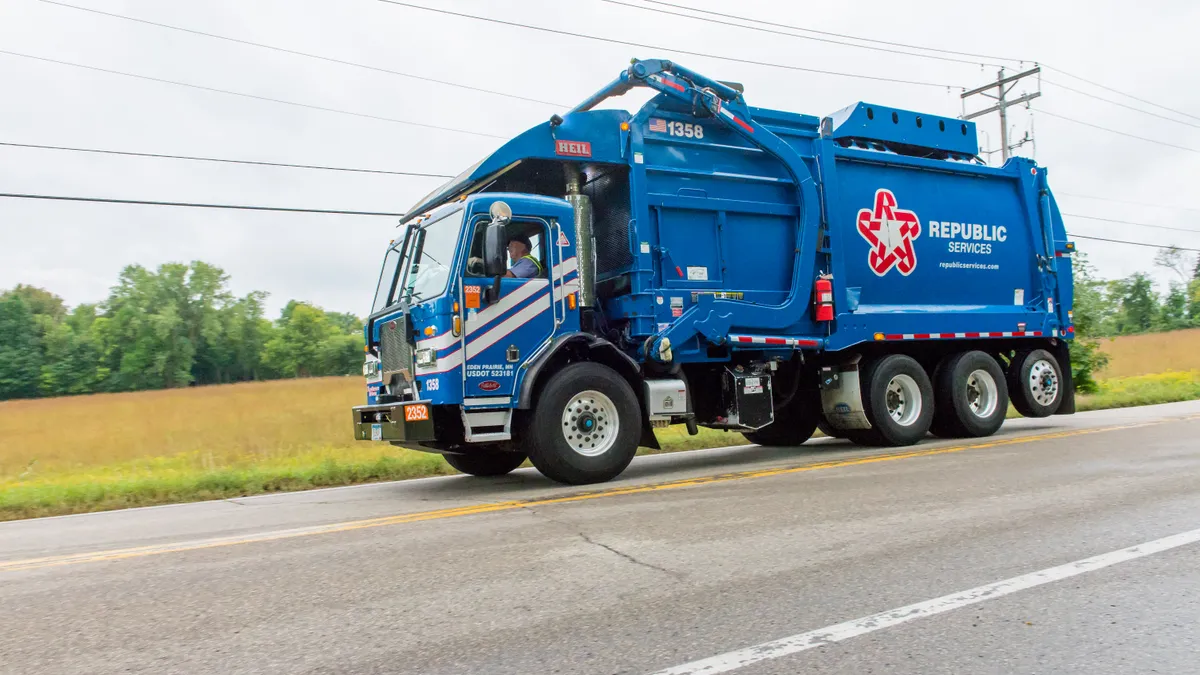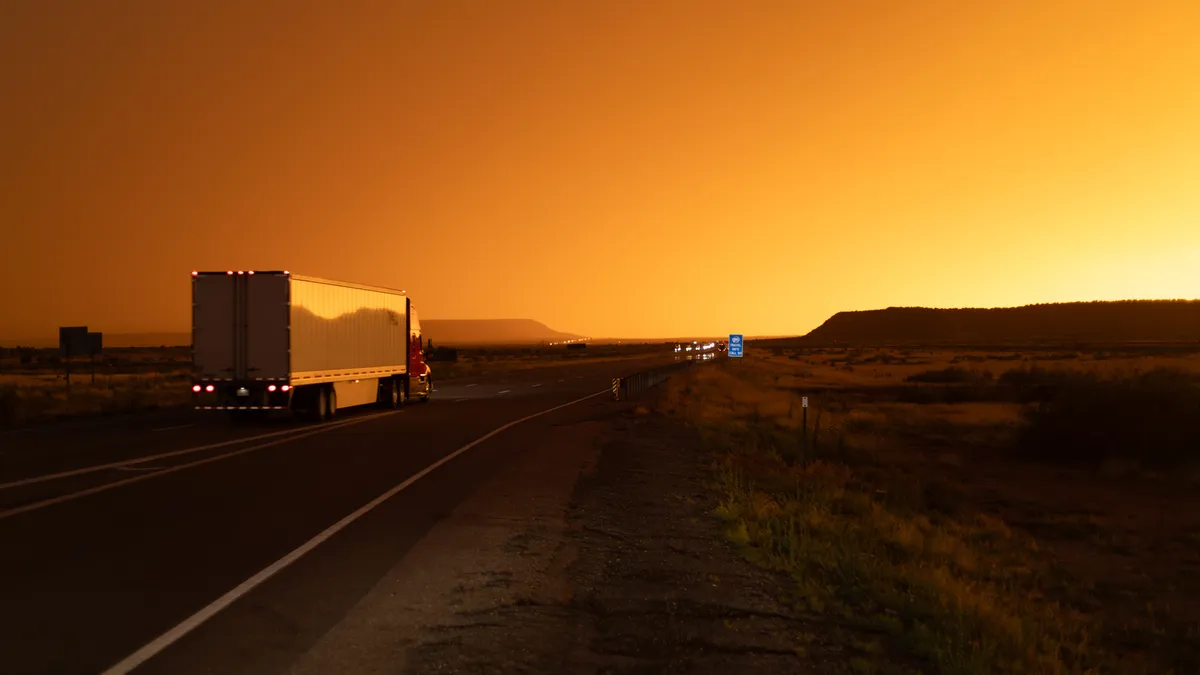Capurro Trucking and Republic Services agreed to pay $100,000 settlements for alleged violations of the California Air Resources Board’s Truck and Bus Regulation, the U.S. EPA announced Dec. 11.
Capurro Trucking paid a civil penalty of $119,162 and Republic Services paid a civil penalty of $100,000 to settle the claims. Republic’s settlement covers 30 entities related to the hauler, which is transitioning its fleet nationally away from diesel fuel.
Neither company responded to a request for comment.
“National truck fleets operating within California need to comply with our state’s truck and bus rule that regulates dangerous air pollution,” EPA Pacific Southwest Administrator Martha Guzman said in a statement. “Holding companies accountable protects the environment and public health, particularly among overburdened California communities that are bearing the brunt of pollution from diesel-fueled, heavy-duty trucks.”
The Truck and Bus Regulation was first created by CARB in 2008, requiring diesel truck owners to install exhaust filters in order to limit particulate matter pollution. The regulation was modified over time, and its final deadline, Jan. 1, 2023, required all trucks subject to the regulation to have model year 2010 engines or equivalent emissions from their vehicles.
It’s unclear how many vehicles operated by the companies were alleged to be out of compliance. The U.S. EPA did not respond to a request for comment.
In recent years, CARB has supplemented the Truck and Bus Regulation with a series of climate-focused regulation. The Advanced Clean Trucks rule, which was granted EPA approval to proceed this year, put truck manufacturers on a timeline to produce more zero-emission vehicles for purchase in the state. Roughly a dozen states have since adopted the ACT rule in whole or are working toward its adoption; more states are still considering its adoption.
CARB also passed the Advanced Clean Fleets rule this year. The rule complements ACT, requiring medium- and heavy-duty vehicle fleet owners to incorporate a growing proportion of zero-emission vehicles into their fleets over the next two decades. Waste fleets earned a delayed implementation timeline under Advanced Clean Fleets, in part out of recognition of the investments haulers have made into vehicles powered by compressed natural gas.
Republic Services has been moving aggressively to incorporate lower-emissions vehicle types into its fleet. Earlier this year, CEO Jon Vander Ark said he hoped the company would have 50 zero-emission trucks in operation by the end of 2024 and aimed to make more than a quarter of yearly truck purchases battery-electric by 2025.
The company’s overall fleet totals roughly 17,000 vehicles, per Republic’s most recent sustainability report. Republic uses RNG to fuel its CNG-powered vehicles, and rolled out its first fully integrated electric collection truck, manufactured by McNeilus and Oshkosh, this year.
Colin Campbell contributed to this article.














